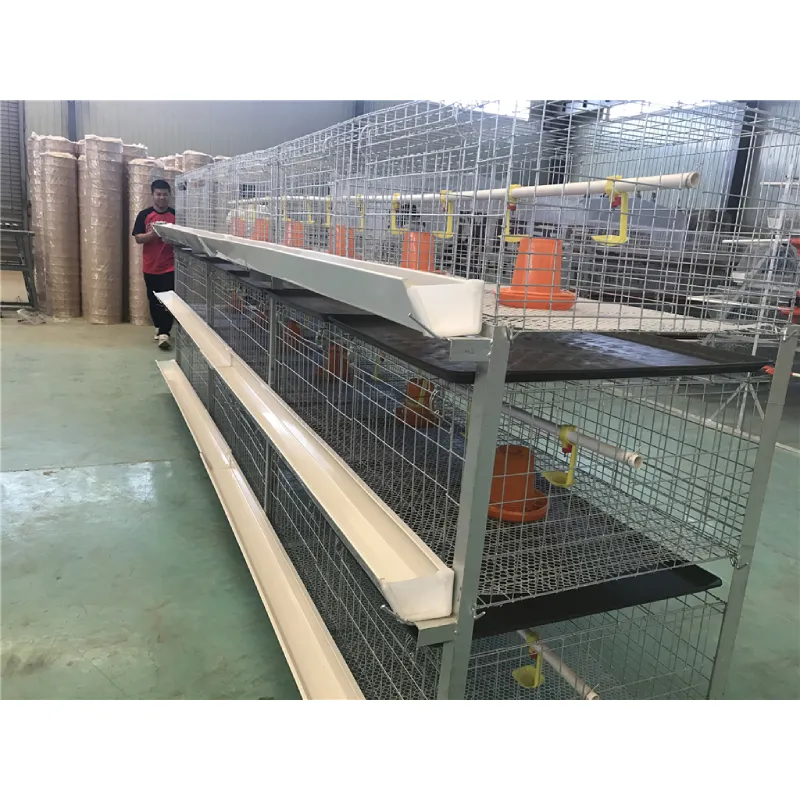egg poultry farm cage
Dec . 15, 2024 13:53 Back to list
egg poultry farm cage
The Future of Egg Production Insights into Poultry Farm Cages
In the modern agricultural landscape, the production of eggs is a significant contributor to global food supply. With the ever-increasing demand for poultry products, the efficiency and ethics of egg farming have come under scrutiny. This article seeks to explore the role of poultry farm cages in egg production, considering both the advancements in technology and the ethical implications associated with their use.
Understanding Poultry Farm Cages
Poultry farm cages are enclosures designed to house chickens, specifically layers, for the purpose of egg production. These systems can vary widely in design, complexity, and size, ranging from traditional battery cages to more modern enriched cages and free-range systems. Battery cages, typically characterized by their small space allocation for each bird, have been under considerable public scrutiny due to welfare concerns. In contrast, enriched cages provide a slightly larger area and additional facilities to allow for more natural behaviors.
Technological Advancements in Cage Systems
Recent innovations in poultry farm cages have aimed to enhance not only the efficiency of egg production but also the welfare of the chickens. For instance, new cage designs incorporate automated feeding, watering, and egg collection systems, significantly reducing labor costs and increasing productivity. These systems ensure that layers receive optimal nutrition and that their eggs are collected promptly, minimizing damage and maintaining freshness.
Moreover, advancements in climate control technologies have improved living conditions within these cages. Temperature, humidity, and ventilation can now be meticulously regulated to create an optimal environment for egg-laying, which can enhance the health of the birds and, in turn, improve egg quality. Farms that implement such technologies tend to report higher egg production rates and lower mortality rates among their flocks.
egg poultry farm cage

Ethical Considerations and Animal Welfare
The use of poultry farm cages raises several ethical considerations, particularly regarding animal welfare. Critics of battery cages argue that they restrict natural behaviors such as nesting, foraging, and social interaction, which may lead to stress and harm. As a response to these concerns, many countries and organizations have proposed stricter regulations regarding cage sizes and standards of living for egg-laying hens.
In recent years, there has been a noticeable shift toward more humane practices, with many consumers advocating for free-range and cage-free eggs. Some farms have transitioned to enriched cages or even completely cage-free systems to meet consumer demand and improve the quality of life for the hens. By allowing birds more space to move, access to outdoor areas, and the ability to engage in natural behaviors, these practices aim to address the welfare concerns associated with traditional caged systems.
Economic Implications
Transitioning to more humane systems, while ethically appealing, presents economic challenges. Cage-free systems typically require more land and result in higher labor costs, which can lead to increased prices for consumers. However, many consumers are willing to pay a premium for cage-free and organic eggs, reflecting a growing trend towards sustainability and animal welfare. As the market for humanely produced eggs expands, farmers must balance the economic viability of their operations with ethical considerations and consumer demands.
Conclusion
The future of egg production on poultry farms hinges on the interplay between technological advancements and ethical considerations surrounding farm cages. While traditional battery cages have faced criticism over animal welfare, the shift toward enriched and cage-free systems reflects broader changes in consumer preferences and societal values. As the industry continues to evolve, it is essential for farmers to adopt practices that optimize production while prioritizing the health and well-being of the chickens. By embracing sustainable practices and innovative technologies, poultry farmers can not only meet the growing demand for eggs but also contribute to a more humane and responsible egg production system. The journey toward a better future in egg production is just beginning, and the choices made today will influence the landscape of the poultry industry for generations to come.
-
Automatic Feeding Line System Pan Feeder Nipple Drinker|Anping County Yize Metal Products Co., Ltd.
NewsJul.30,2025
-
Automatic Feeding Line System - Anping Yize|Pan Feeder,Nipple Drinker
NewsJul.30,2025
-
Automatic Feeding Line System - Anping County Yize Metal Products Co., Ltd.|Pan Feeder, Nipple Drinker
NewsJul.30,2025
-
Automatic Feeding Line System-Poultry Farming|Chicken Feeding&Watering
NewsJul.30,2025
-
Automatic Feeding Line System - Anping County Yize Metal Products Co., Ltd.|Pan Feeder Nipple Drinker,Broiler Farming
NewsJul.30,2025
-
Automatic Feeding Line System Pan Feeder Nipple Drinker-Anping County Yize Metal Products Co., Ltd.
NewsJul.30,2025






